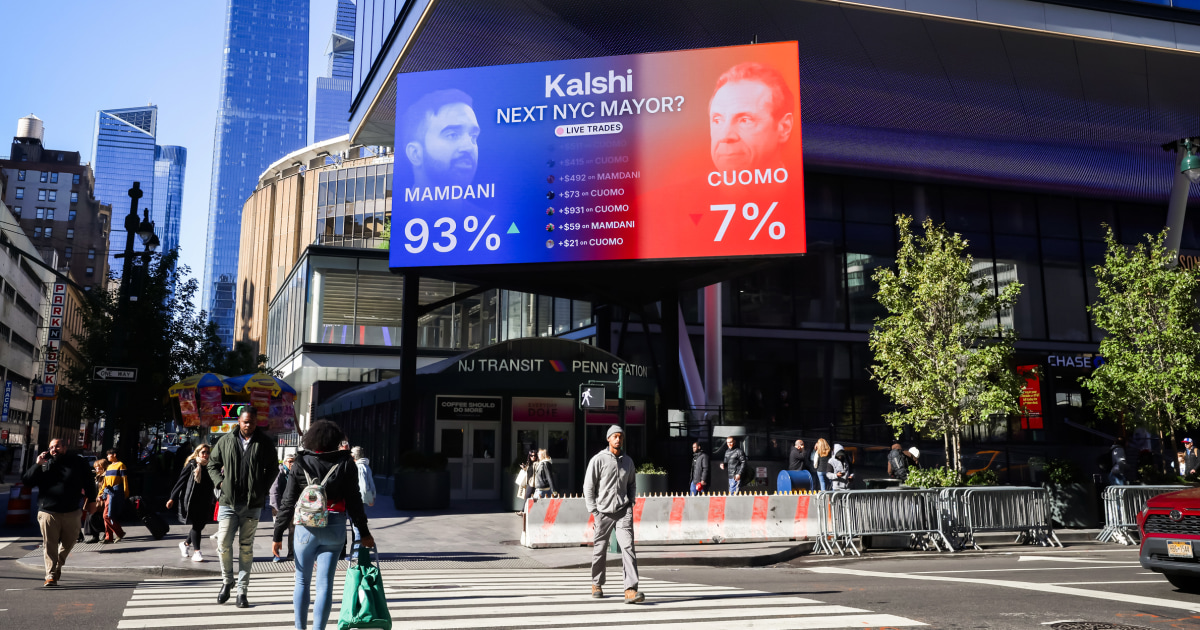Google will begin including “prediction market” odds from the online betting platforms Kalshi and Polymarket into its Google Finance tools, the company said late Thursday.
The move would potentially put the platforms in front of millions of Americans who use Google, as the companies behind them face legal scrutiny in several major markets.
Polymarket and Kalshi insist that the wagers placed through their platforms are merely “event contracts” between private parties that should be regulated like commodities — not traditional gambling subject to state regulations.
That distinction has failed to convince many federal lawmakers and state attorneys general, however, who claim the companies “package sports betting as events contracts.”
Google said the integration of “event contract” sites will allow its users to “ask questions about future market events and harness the wisdom of the crowds.”
“Just ask something like ‘What will GDP growth be for 2025?’ directly from the search box to see current probabilities in the market and how they’ve changed over time,” the company said in a blog post.
It was unclear from Google’s announcement whether the prediction widgets would click through directly to Kalshi’s and Polymarket’s websites.
Representatives for Kalshi, Polymarket and Google did not reply to questions about how the deal will work.
But the “predictions” on both of these websites represent the aggregate of bets that users place on the outcome of whatever event is at issue — everything from financial results and election outcomes to movie award nominees and sports games.
Both companies currently operate within a patchwork of laws and regulations around the world that frequently put them in legal gray areas.
“By claiming to be federally regulated … issuers of sports event contracts can avoid myriad state [gaming] laws, including licensing and background investigations, minimum age requirements, federal anti-money laundering rules, and consumer protections such as addiction warnings and integrity monitoring,” six U.S. senators wrote in a Sept. 30 letter to federal regulators about sites like Kalshi and Polymarket.
Currently, U.S.-based individuals are barred from placing active bets on Polymarket and are instead restricted to a “view-only” mode on the site. But that is expected to change in the coming weeks, as Polymarket rolls out U.S. betting services.
Residents of Australia and France are also restricted in the kind of active betting they can do on Polymarket.
Kalshi is slightly different. Regulated in the United States by the Commodity Futures Trading Commission, Kalshi argues in court that it is permitted to operate in all 50 states, even ones that explicitly prohibit sports betting.
State attorneys general and anti-gambling groups in multiple states have brought legal actions against Kalshi that are moving through the courts. The outcome of these cases could determine the company’s access to U.S. markets in the future.
Along with legal questions, Polymarket has also faced allegations that its betting-based prediction system is vulnerable to market manipulation — and that the very existence of prediction markets could jeopardize the integrity of events, in particular of elections.
“Conduct designed to artificially affect the electoral process could manipulate the market and incentivize the spread of misinformation,” the Biden-era CFTC wrote in an appeal of an earlier lower-court ruling in favor of Kalshi.
On Thursday, a group of researchers at Columbia Business School’s Decision Risk and Operations division published a paper that found that as much as 25% of trading volume on Polymarket may be artificially inflated by some users rapidly buying and selling contracts to themselves.
The sites have also faced criticism over how they determine whether a given event has taken place.
